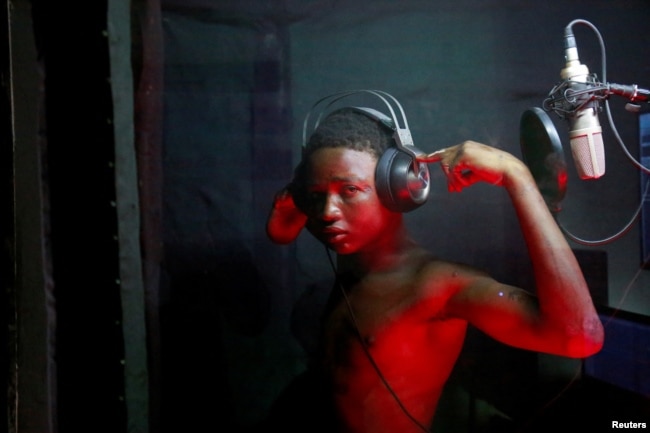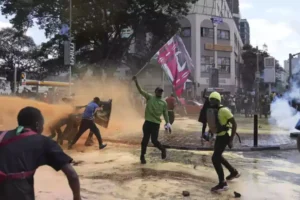A small recording room outside the Congolese capital Kinshasa has become a safe space for homeless teenagers. They sing about their life on the streets and dream of a better future.
The homeless sing about sexual abuse, stealing, theft, and dealings with the police at the Mokili Na Poche cultural center. It is a safe space that permits young people and children to wash, eat, and learn.
“It really makes me happy when I sing,” said 19-year-old Osé Mavakala. He has slept on the streets for years. There are more than 20,000 homeless children in Kinshasa, UNICEF, the U.N. agency, has found.
Other teenagers looked on with happiness as Mavakala rapped into the recording equipment at the center in late August.

Mavakala dreams of bigger goals after having the chance to record in a real recording space. He said, “It encourages me and I tell myself – ah, life belongs to the courageous.” He added that U.S. rapper Lil Wayne and Congolese star Fally Ipupa influenced his music.
He has been coming to the center for the past three years, taking part in the music, art, and reading classes it offers throughout the day. Founder Cedrick Tshimbalanga hopes these skills and daily experiences will help the children build a base for their life and their voices.
“With music…young people are able to talk about their daily experience – everything they live through daily: rape, theft, trauma, attacks,” said Tshimbalanga, who plans to release their music soon.
The classes are also a chance for young people to make up for lost possibilities in life. While the Democratic Republic of Congo has made progress in education, over 7 million children aged between five and 17 still do not have schooling, UNICEF found.
“Break free from the criminal life, my friend, it’s time to see what the future holds for you,” Mavakala rapped during an emotion-filled performance at the center in August.
I’m Gregory Stachel.
Source : VOA News
















